![How do I clean and care for my teeth when I'm outdoors? [+natural materials for brushing teeth] How do I clean and care for my teeth when I'm outdoors? [+natural materials for brushing teeth]](https://survival-kompass.de/img/artikel/zaehne-putzen-outdoor-ohne-zahnpasta-zahnbuerste.jpg)
How do I clean and care for my teeth when I'm outdoors? [+natural materials for brushing teeth]
👉 The key facts from this guide
- Dental hygiene is also important in the wilderness to avoid serious health consequences such as blood poisoning.
- There are different methods to clean teeth without a toothbrush, including using fingers, homemade brushes made of branches or grasses, washcloths, towels, or kitchen paper.
- As a substitute for toothpaste, oil pulling, baking soda, and activated charcoal can be used.
- There are also alternatives to conventional mouthwash, such as saltwater rinse and pine needle mouthwash.
- Travel-sized toothpaste and toothbrushes with collapsible handles are practical for outdoor activities.
There you sit, in the midst of the wild wilderness, your campfire crackling, the stars glittering, and the forest around you whispering its mysterious stories.
But wait, have you thought about your teeth?
Yes, exactly, your teeth!
Because even if you find yourself in the deepest forests or on the highest mountains, they should not be neglected.
Dental hygiene is not an urban luxury, my friend, but an essential part of our health - and that applies even in outdoor adventures.
After all, you don't want your smile in the camera after a successful summit ascent to remind you of an old pirate, do you?
Now you're probably wondering: How do I brush my teeth when I'm far away from my home bathroom?
No toothbrush, no toothpaste, no trace of mouthwash.
No problem! I'm here to show you how to keep your teeth shining even when you're surrounded by Mother Nature.
Stay tuned and find out how to keep a fresh smile on the go without leaving the wilderness.
Why is it important to brush your teeth even in the wilderness?
If you neglect your oral hygiene long enough, it can have serious health consequences that can become life-threatening under certain circumstances.
Yes, even blood poisoning can occur under certain circumstances due to inadequate dental hygiene.
After all, you don't want that.
Background knowledge: pH value and plaque
So that you can understand what the whole process is good for in the following sections, let me first explain (albeit simplified) what dental hygiene is all about in general.
For my part, I am not a dentist - I don't know about you - but a certain basic knowledge should always be present.
To maintain your oral and dental hygiene, you need to consider exactly two things: the pH value in your mouth and plaque deposits on your teeth.
- An acidic pH value of your teeth promotes the development and spread of caries over a longer period of time.
- Plaque, on the other hand, ruins your valuable enamel over time and promotes the classic hole in the tooth. If you do something against the plaque deposits on your teeth, you are not only doing something for fresh breath, but also protecting your enamel and teeth from cavities.
But enough with the scientific explanations, let's get straight to the matter at hand.
Prevention of cavities and gum inflammation due to inadequate dental care
In the wilderness, conditions are often difficult and it can be difficult to have all the utensils for thorough dental care with you.
However, it is important to brush your teeth to avoid cavities and gum inflammation. If the teeth are not cleaned regularly, bacteria can settle in the oral cavity and lead to inflammation.
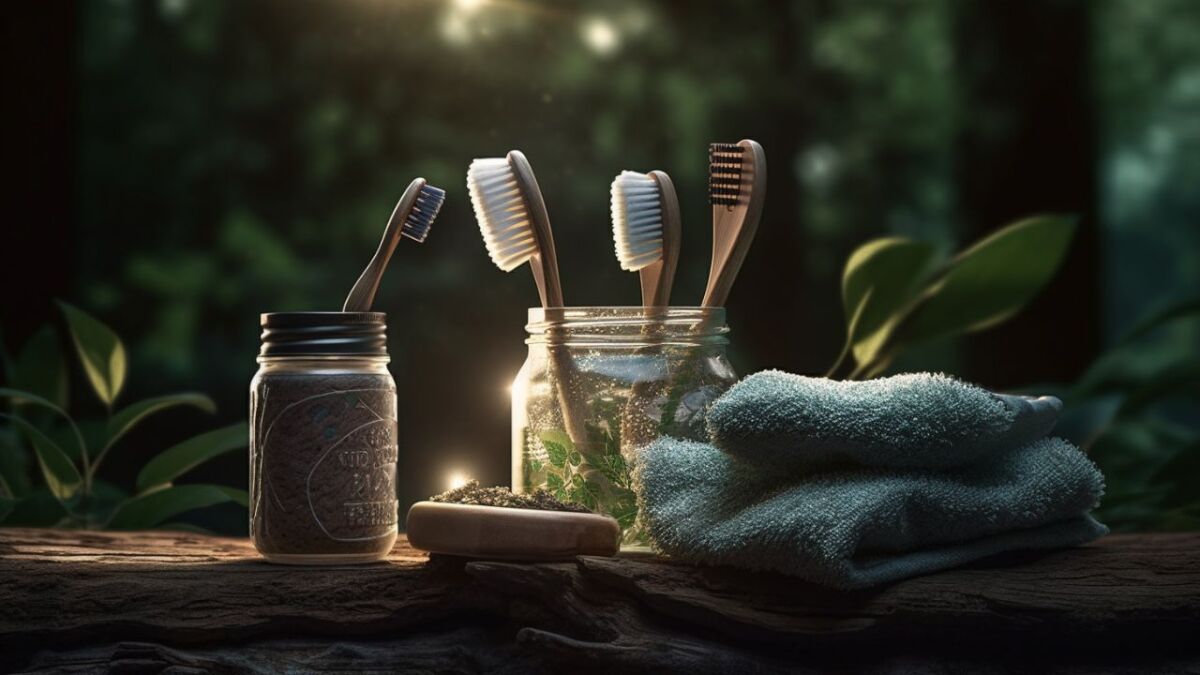
Reduction of bad breath
Anyone who has been on the road without dental cleaning for a long time knows that unpleasant odors can quickly develop in the mouth.
Regular brushing reduces bad breath and leaves a clean and fresh feeling in the mouth.
Cleaner mouth feel
A clean mouth feel not only contributes to the health of the teeth, but also ensures that the body feels good. After all, oral hygiene is closely related to general body hygiene.
And especially in the wilderness, the topic of body hygiene is to be taken seriously, because the body is your most valuable asset here. It is your responsibility to take care of it.
How can you brush your teeth in the wilderness without a toothbrush?
In the optimal case, of course, you have a conventional toothbrush with you. This way you undoubtedly know what to do to brush your teeth.
After all, we are usually taught this from an early age. Nevertheless, exceptional situations can arise in which you lose or forget your toothbrush.
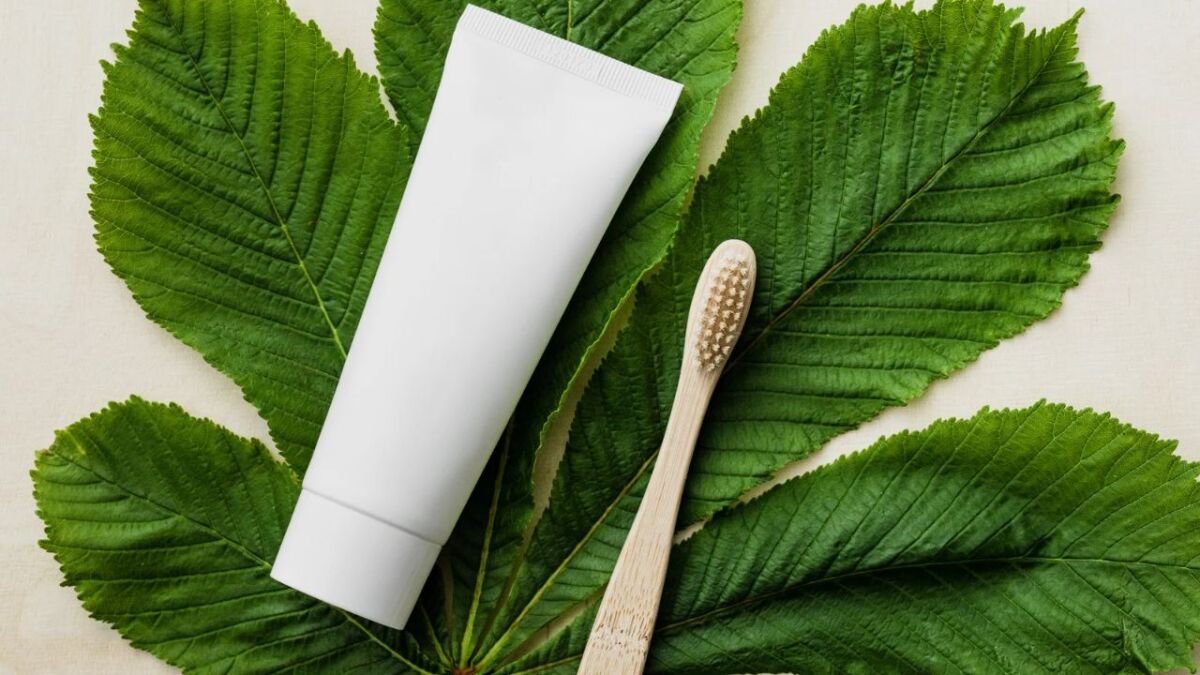
In view of this, I have a few alternative suggestions for you, so that you are still able to maintain your oral and dental hygiene in this situation.
A toothbrush is of course optimal for reaching and removing plaque on the teeth at numerous locations, but there are of course other ways to achieve results.
1. Use your fingers as a toothpaste substitute
Let's start with the worst-case scenario in this situation: you have neither a toothbrush with you nor anything else to maintain your oral and dental hygiene.
The only half-effective means currently available to you are your own fingers.
First of all: You will most likely not be able to achieve the effect with your fingers that a toothbrush brings. For the most part, your fingers do not have bristles - unless you are of course an exception. You will not be able to remove plaque as well as desired, but it is still better than nothing.
- First, apply toothpaste to your fingertip, just as you would with a toothbrush.
- Brush your teeth, using the same motion as you would with a toothbrush. Try to get the toothpaste to as many places as possible.
- Rinse your mouth thoroughly with water. If you do it thoroughly enough, you can even get rid of food residues that are between your teeth.
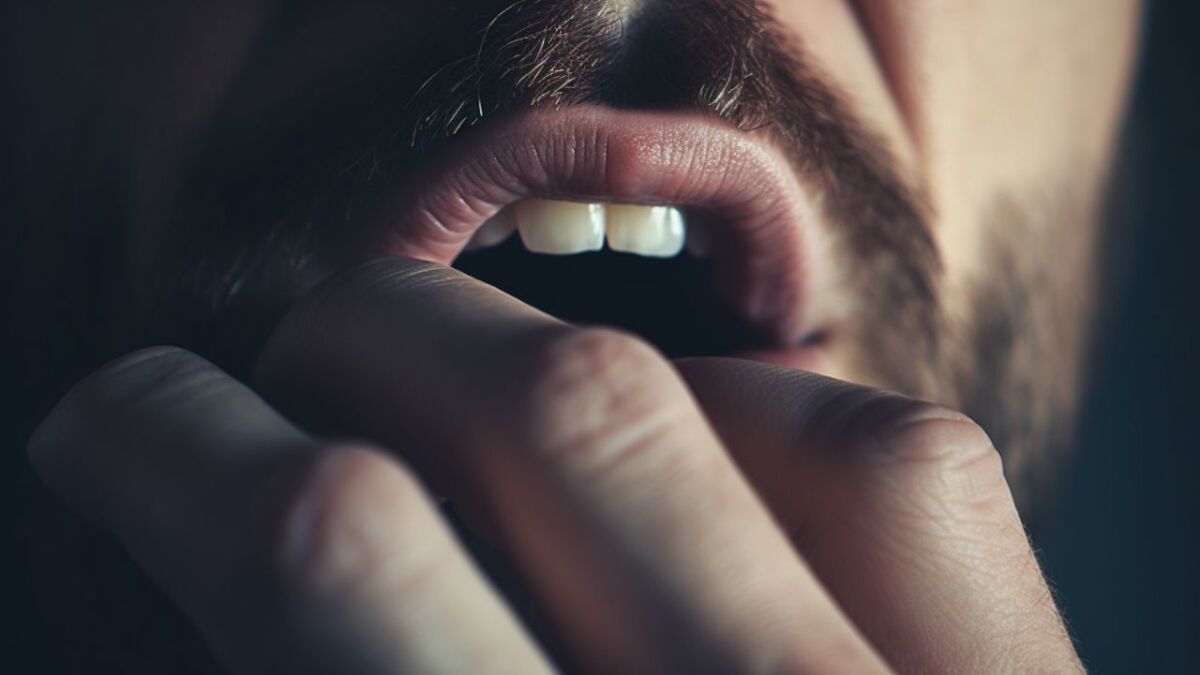
As mentioned earlier, this method will not create the friction necessary to remove all plaque deposits on your teeth.
Therefore, it is even more important to have the right toothpaste with you. Ideally, applying it can already remove food and plaque deposits, so your fingers only handle the rough application.
2. Build your own self-made toothbrush
You don't think that oral and dental hygiene was only performed with the invention of the modern toothbrush, do you?
Long before, people paid attention to dental health in order to avoid infections or tooth loss. Accordingly, you can use some "primitive" looking methods.
You can use twigs or grasses, for example, to build a makeshift toothbrush. This may seem strange at first glance, but it turns out to be an effective alternative if you are in the wild, for example. All you need is a suitable twig.
- Choose a twig that is ideally about the length and shape of a ballpoint pen or pencil. Young branches are best suited for this.
- If you can't find a twig in the right size and shape, you can of course also cut or carve it to size.
- Chew on the end that you want to use to brush your teeth until the first fibers show. To avoid gum damage and infections, the twig should not have any impurities and should not be too hard.
- Next, you can brush your teeth as usual. The fibers of the branch serve as your "brush". Be careful not to get any splinters.
- You will need to trim the head of your makeshift toothbrush occasionally. To keep the toothbrush working, simply repeat the previous steps until your twig is too short to serve as an alternative toothbrush.
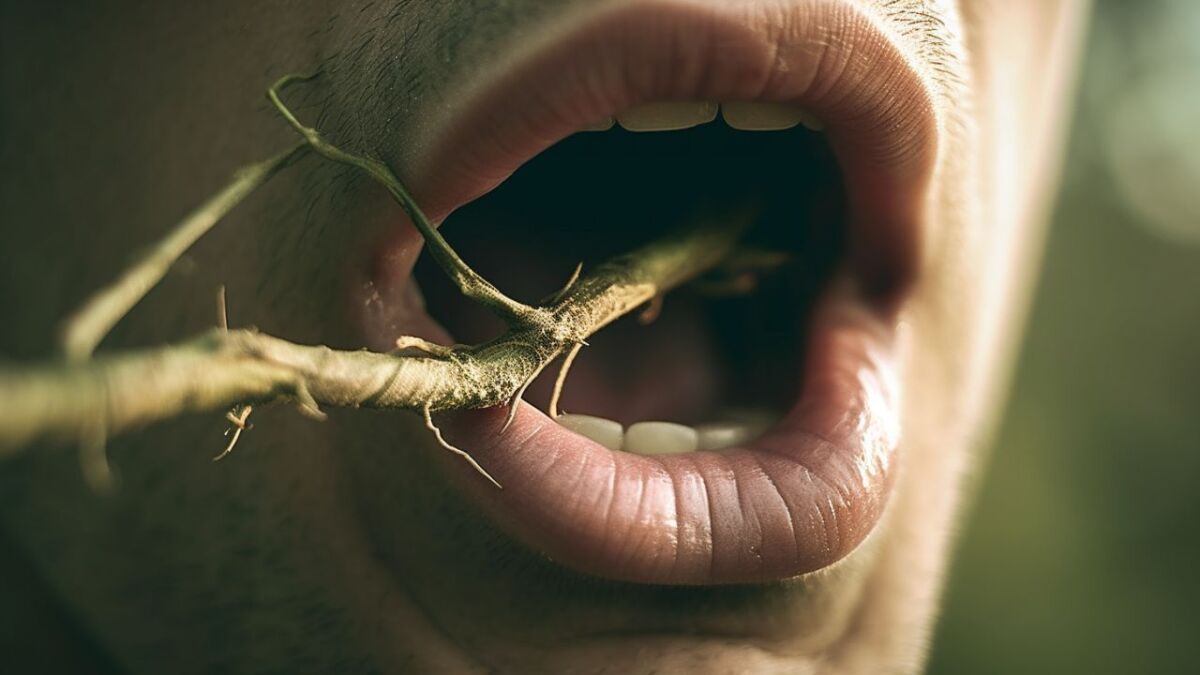
Many trees contain largely natural antibiotics that can prevent the formation of cavities.
It can therefore be useful not to clean them thoroughly before use. However, still examine your selection carefully to identify and remove any risky contaminants immediately.
3. Use a washcloth, towel, or piece of fabric
Washcloths or towels ideally have a rough surface that is excellent for removing plaque on the teeth.
The rougher the surface, the more effective you can use this method. However, make sure that there are no chemicals in the fabric that could harm you.
Using this method is not too difficult:
- First, wrap the washcloth or towel around your finger or place it around it. Remember that you want to use the surface of your finger or fingers to brush your teeth.
- Apply the toothpaste to the surface of the washcloth, where your fingertip is located.
- Next, brush your teeth. Use the rough surface of the washcloth to remove plaque deposits reliably. You may need to apply more toothpaste in between.
- Again, rinse your mouth with water.
When using this method, however, be careful not to stress the surrounding gums too much by constantly rubbing with the washcloth.
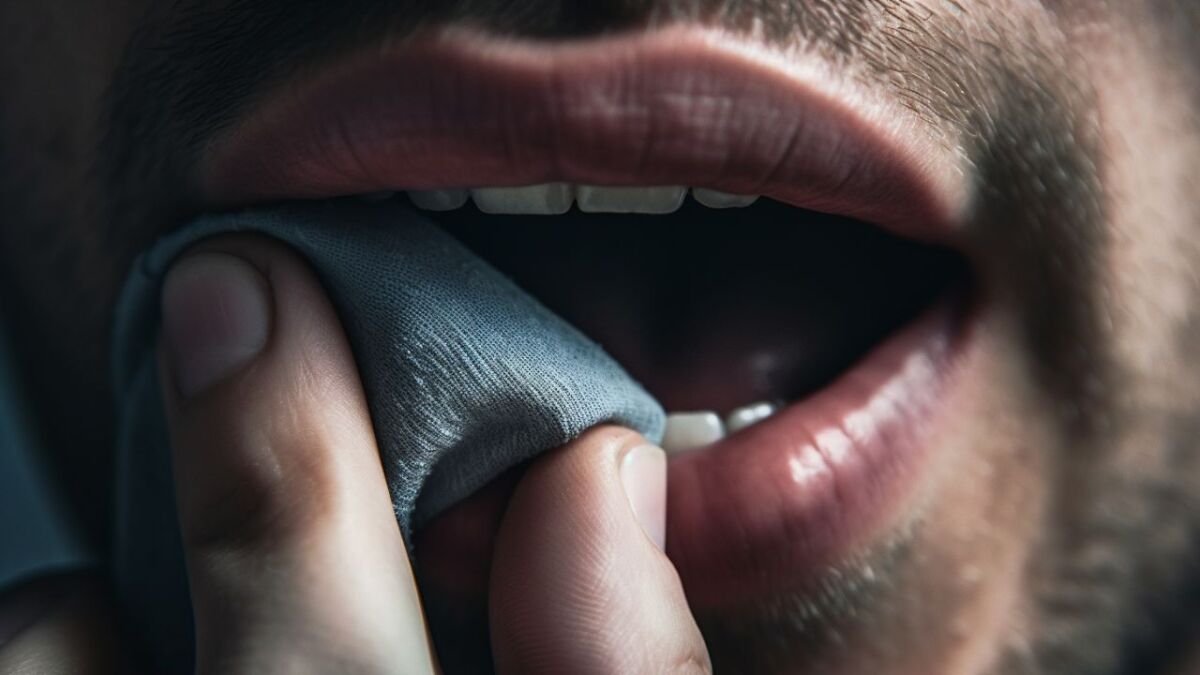
4. Use kitchen paper or toilet paper
If nothing else is available, you can of course also use kitchen paper or toilet paper.
However, I recommend kitchen paper, as you need to be very careful with toilet paper, as it can quickly tear or dissolve in moisture. So prefer kitchen paper if you have both at your disposal.
- Again, start by wrapping the kitchen paper around your finger(s). This way, you can also reach more difficult areas in your mouth.
- Apply the toothpaste to the spot where your fingertip is located.
- Brush your teeth. Over time, you will probably need to apply more toothpaste, simply because of the absorbent properties of the paper. If you use toilet paper, be very gentle or use several layers. Just make sure that any loosened pieces do not remain anywhere in your mouth.
- Rinse your mouth with water to remove any remaining residue.
When using this method, you should avoid oily or overly sticky toothpaste. In the worst case, the kitchen roll / toilet paper tears (multiple times) or simply cannot handle the task.
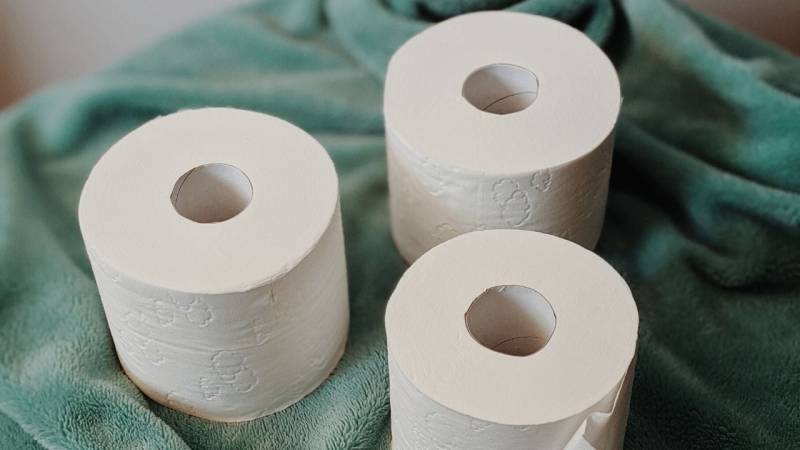
Which toothpaste is best for brushing teeth in the wilderness?
Buy travel-friendly sized toothpaste
When it comes to choosing toothpaste, it is advisable to buy a travel-friendly sized toothpaste (e.g. here on Amazon). There are also toothbrushes available in handy sizes with a foldable handle (e.g. here on Amazon). This saves space and allows for easy storage.
Use tooth powder as an alternative
Another alternative is to use tooth powder (buy here). Simply put a small amount of the powder on a wet toothbrush and clean your teeth as usual. Tooth powder is usually free of chemical additives and can therefore be a good choice for natural teeth cleaning.
3 alternatives to conventional toothpaste
Now that you have learned about some great alternatives to toothbrushes, it's time to learn the same about alternative toothpaste.
The goal is to remove impurities and achieve an antibacterial effect even without conventional toothpaste.
Fortunately, there are also many options available.
1. Oil pulling as a toothpaste substitute
It may seem a little strange to suggest using oil for dental hygiene. But so-called oil pulling is a method known for centuries to maintain oral and dental hygiene.
Which oil you use is up to you, but I recommend coconut oil (buy here) or olive oil (buy here) as these varieties have proven themselves over the years.
- Take a heaping teaspoon of your preferred oil into your mouth.
- Rinse your mouth with the oil for the next 20 minutes. Swirl the oil continuously in your mouth, including through the spaces between your teeth and along your gums. Ideally, the oil should touch every surface of your mouth.
- Spit out the oil after 20 minutes. It's best to do this about 100 meters away from your current sleeping area.
- Next, brush your teeth with a (alternative) toothbrush of your choice and a little water. Rinse your mouth a few times to remove any remaining oil.
The background: Oil pulling binds bacteria and toxins from your mouth over time. Therefore, it is necessary to perform the entire process for about 20 minutes.
When you spit out the oil, there are a lot of bacteria and toxins in it that you don't want to have near you - hence the need to spit out the mixture about 100 meters away from your home.
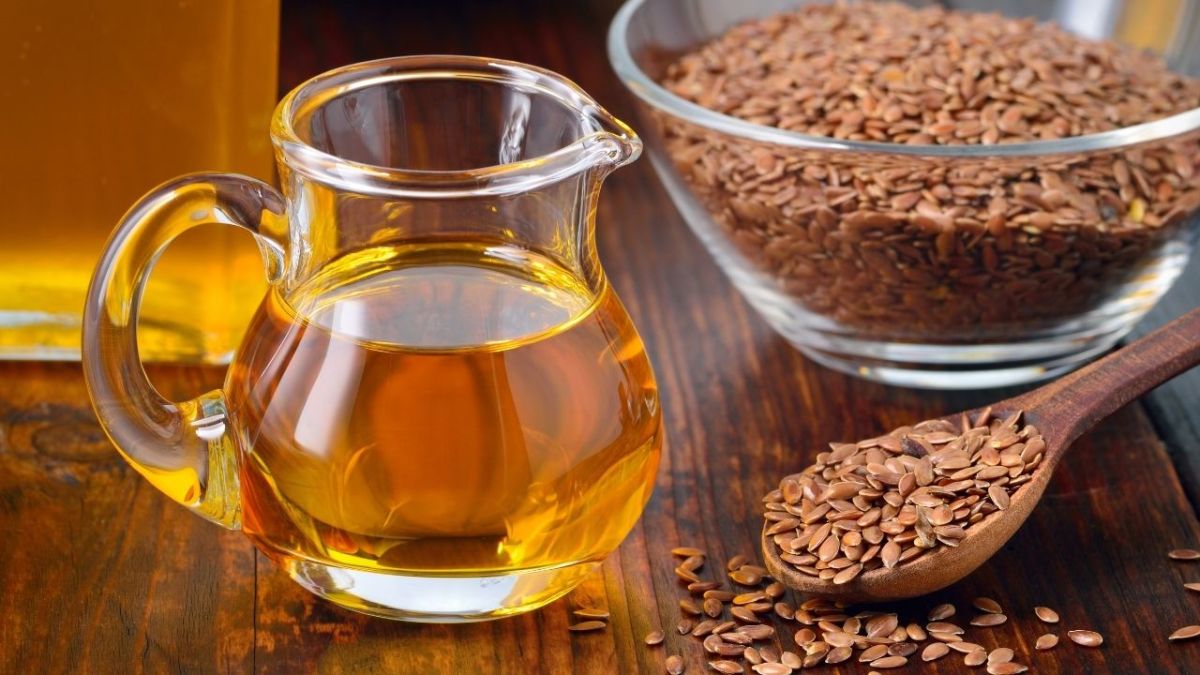
2. Use baking soda or sodium bicarbonate powder for teeth cleaning
If you know a little about camping, you will know that baking soda or sodium bicarbonate powder is excellent for trips into the wilderness - whether as a pain reliever for bites or as a means of combating unpleasant odors. Here's another great use for this valuable powder!
Sodium bicarbonate powder has an antibacterial effect that you can definitely use for oral and dental hygiene.
Interestingly, many modern toothpastes now contain baking soda. So using it can't be wrong, right? To use sodium bicarbonate powder as toothpaste, you need to mix it with water.
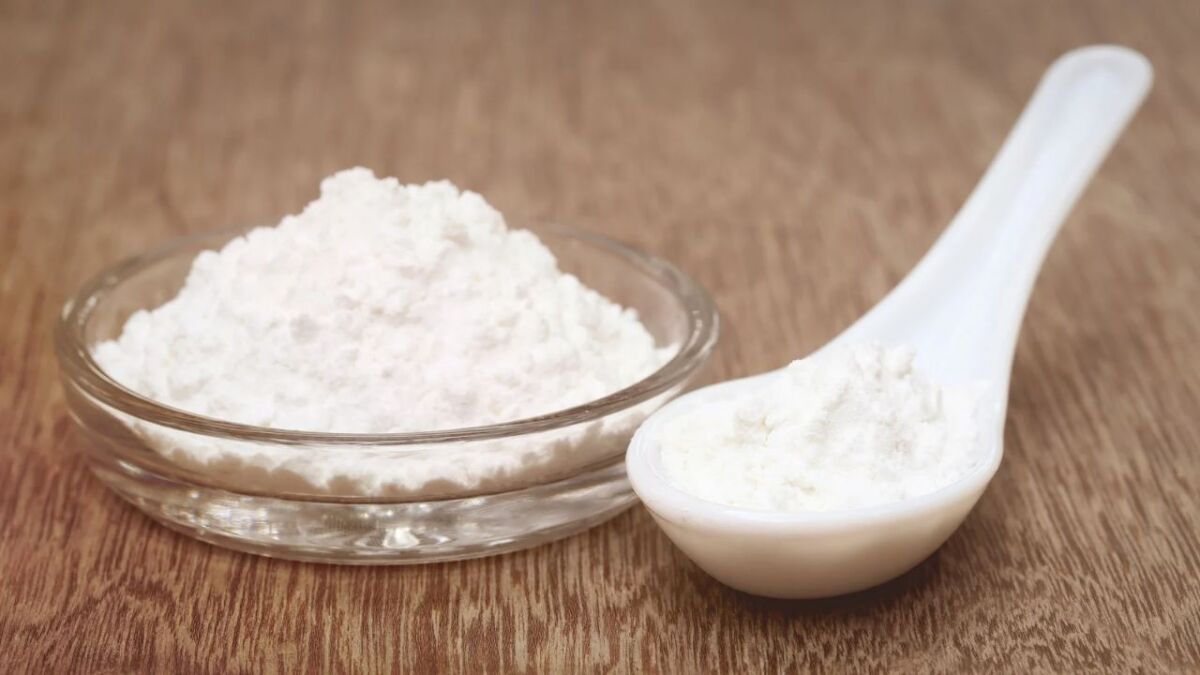
Here's how:
- You can either mix it in a small container with some water or take the powder directly into your mouth so that it combines with your saliva.
- Then brush your teeth with a toothbrush of your choice.
- Finally, rinse your mouth thoroughly.
You should moisten the toothbrush in advance.
Baking soda or sodium bicarbonate powder also removes more stubborn tooth impurities and effectively fights plaque.
Furthermore, sodium bicarbonate powder is an extremely versatile and healthful substance that I highly recommend and should not be missing from any camper's repertoire.
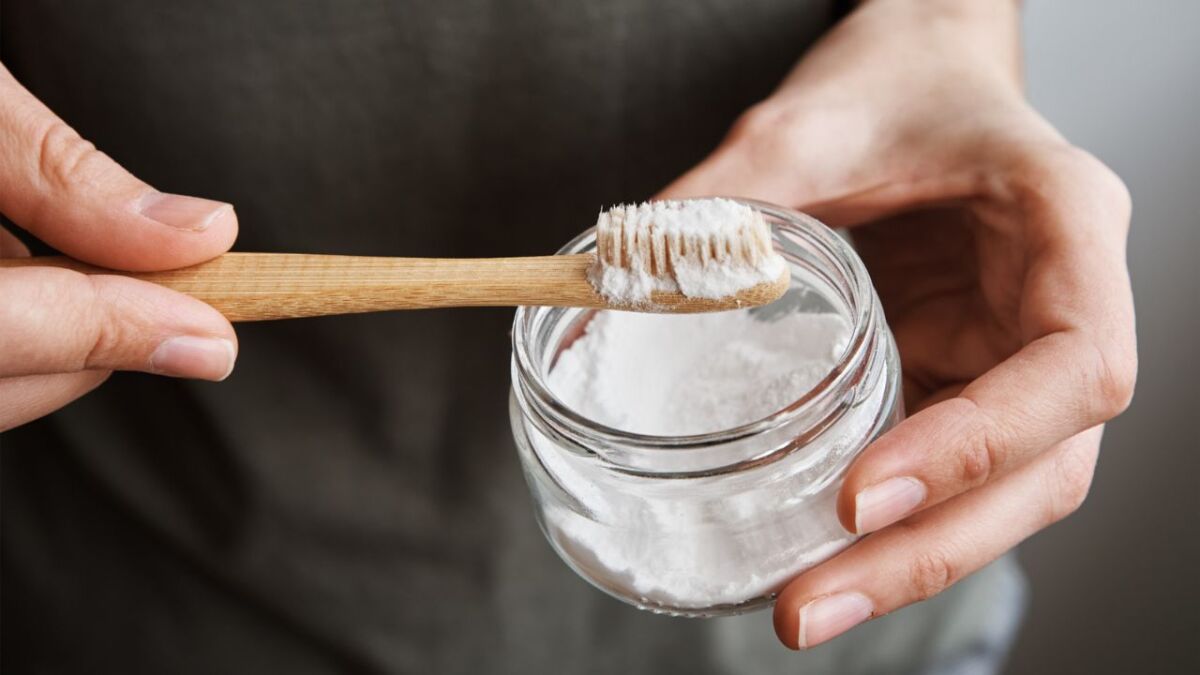
3. Use activated charcoal for dental hygiene
Activated charcoal is often mentioned in connection with camping or outdoor activities and should not be missing from any survival kit.
Activated charcoal can help you with water purification (such as a self-built water filter), or serve as a short-term medicine for food poisoning as well as snake or insect bites. You can also successfully treat skin infections or toothaches with activated charcoal.
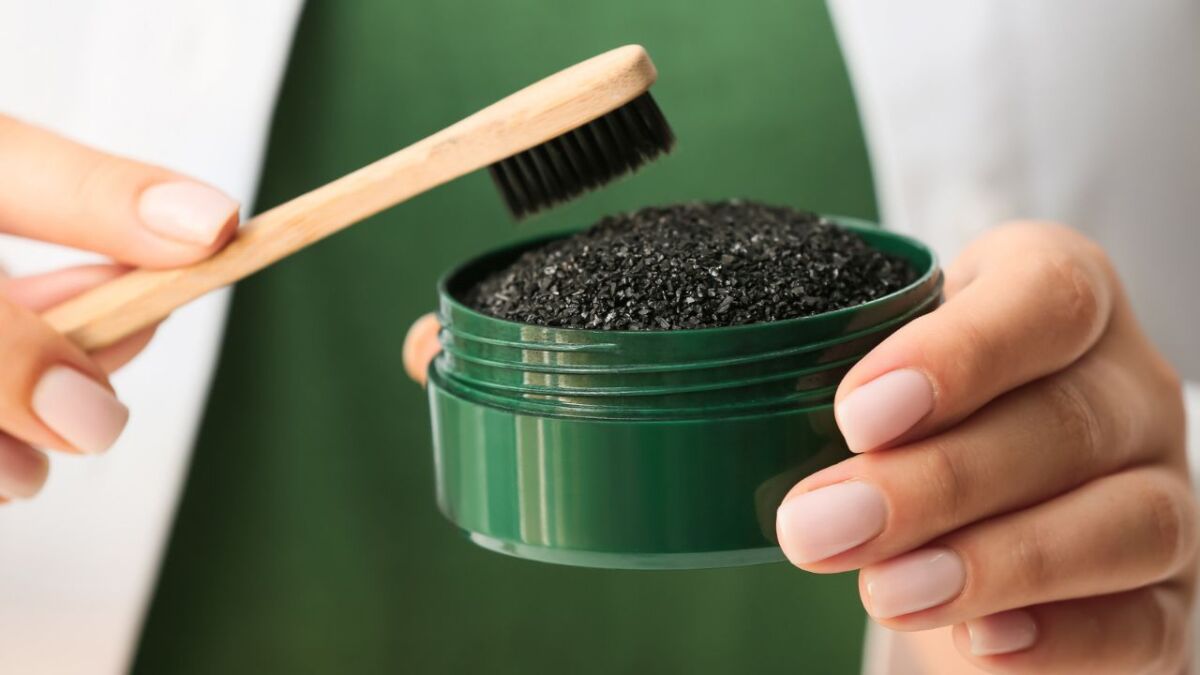
It stands to reason that activated charcoal can also be used for oral and dental hygiene. In fact, there are now a few types of toothpaste based on activated charcoal.
So you can use it for dental care without hesitation. Moisten the toothbrush of your choice with water or saliva and then dip it in the activated charcoal.
Now brush your teeth as you normally would. Just like baking soda, activated charcoal is able to optimize the pH value in your mouth and thus stimulate the rebuilding of tooth enamel.
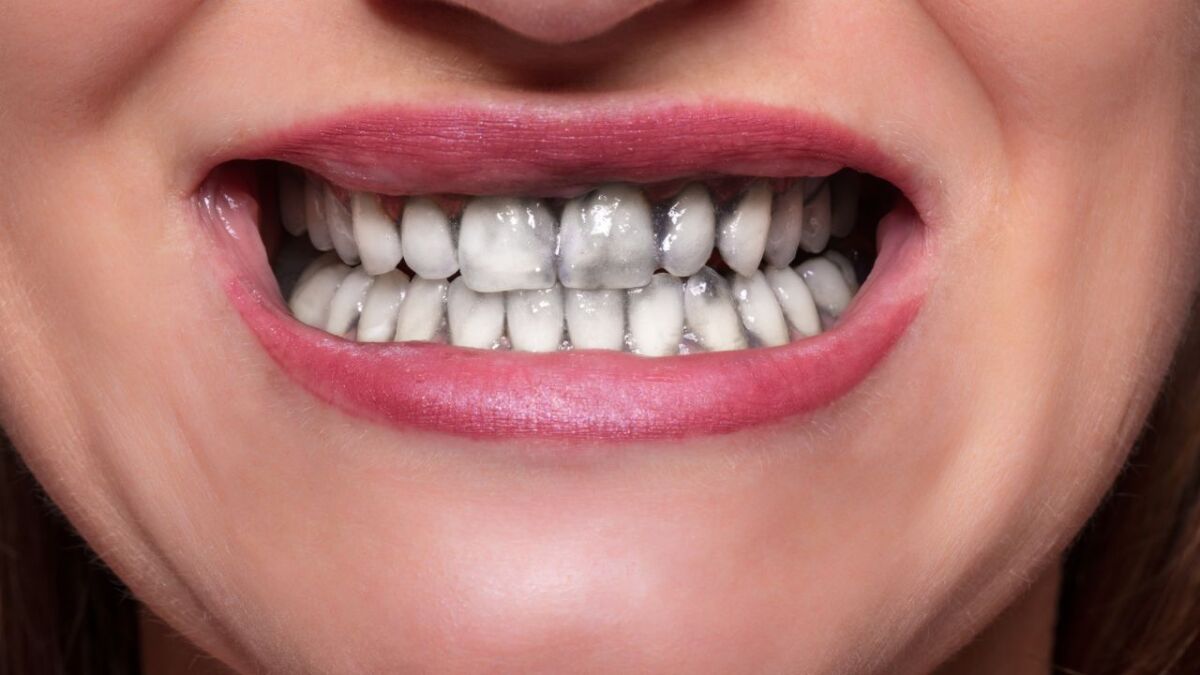
How to make activated charcoal yourself
Making activated charcoal in the wilderness is an exciting project and can be useful for water purification in an emergency situation. Here is a basic method of how to do it:
- Material procurement: You need wood. Hardwoods like oak, maple, or cherry are ideal, but ultimately any wood can be used.
- Production of charcoal: Burn the wood under controlled conditions. You can do this by making a fire, placing the wood on it, and letting it burn until it becomes charcoal. You want the wood to be black and charred, but not burned to ash.
- Activation of the charcoal: After making your charcoal, you need to activate it. In the wilderness, this can be achieved by putting the charcoal in a container with some water and bringing it to a boil. Let it boil for about 10 minutes. This opens the pores in the charcoal and turns it into activated charcoal.
- Drying the activated charcoal: After boiling the activated charcoal, you need to let it dry. This can take several hours to days, depending on the conditions.
However, the resulting activated charcoal does not have the same quality and effectiveness as commercially produced activated charcoal. Nevertheless, it can be helpful in an emergency situation.
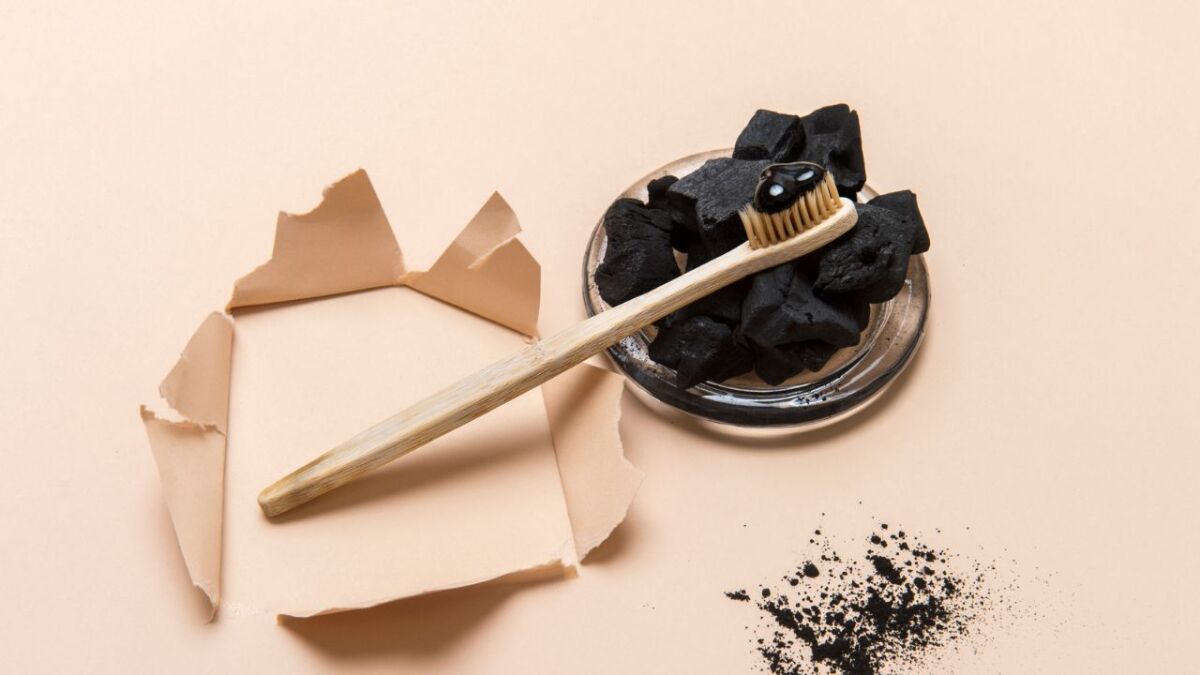
4 alternatives to conventional mouthwash
A good mouthwash protects your teeth from bacteria, strengthens tooth enamel, and ensures fresh breath.
If you find yourself without mouthwash in the wilderness, you can still use one or the other option.
1. Saltwater rinse
Admittedly, this rinse is not necessarily the most flavorful. However, a saltwater rinse brings with it a lot of beneficial effects, such as an antibacterial effect that fights plaque and ensures fresh breath.
The salt in the rinse disinfects and cleans your mouth thoroughly.
To make a saltwater rinse, you logically add some salt to a container of water. Then mix it a little so that the salt can distribute. But don't overdo the amount of salt, after all you want to keep the rinse in your mouth for a while.
Rinse your mouth thoroughly with the mixture, it is also possible to gargle to clean the throat. Then rinse your mouth again with normal water. If necessary, you can also brush your teeth with a toothbrush of your choice (dry).
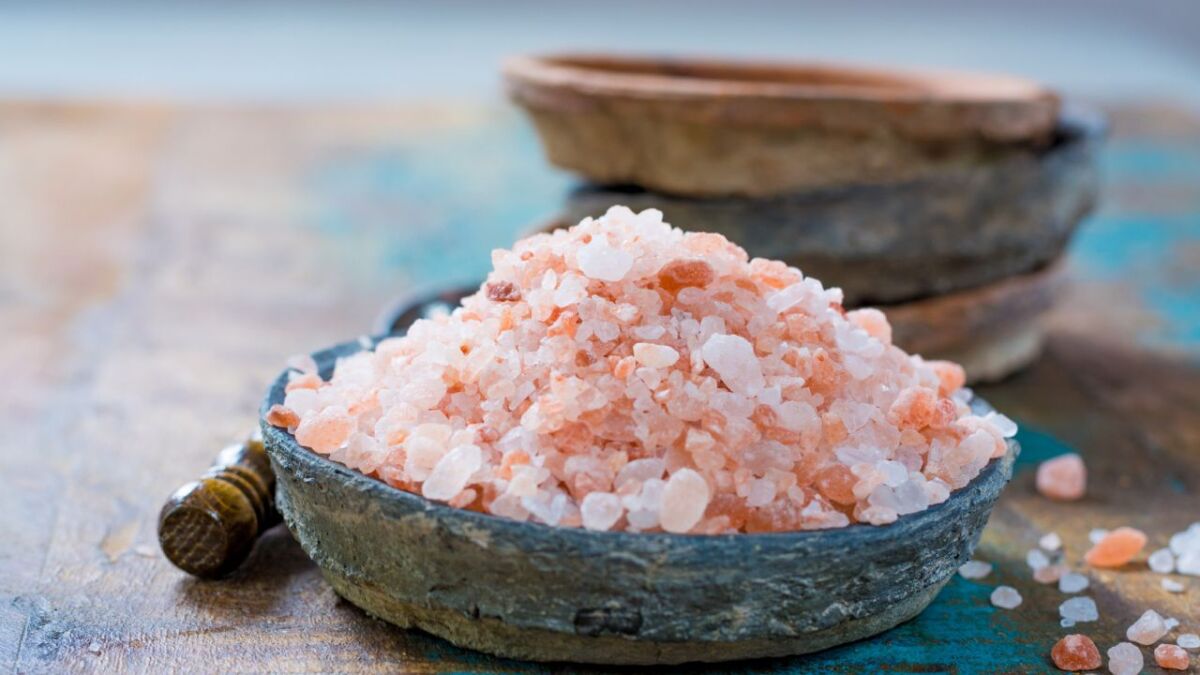
However, keep in mind that you should not use this type of rinse too often or for too long. Over time, the salt will damage metal fillings, crowns, braces, and even tooth enamel. If you only want to use the saltwater rinse occasionally, this is not a problem.
2. Pine needle mouthwash
Even if it sounds adventurous to you, you can make a great mouthwash from pine needles.
Pine needles have a few health benefits, such as a very high content of vitamin C and antiseptic properties to keep the bacteria in your mouth in check. Furthermore, this mouthwash ensures fresh breath.
- First, pick a few pine needles. It's best to choose the very young needles as this is where the tree directs most of its nutrients and valuable vitamins.
- Now you need to get to the sap of the pine needles. You can cut, pound, or grind them. The sap that emerges has all the medicinal properties mentioned above. Collect the sap in a suitable container.
- Add a little boiling water to the sap and let it steep for about 10 minutes.
- Next, take a clean piece of fabric and dip it in the solution. Take a second container and wring the fabric over it. The liquid that drips from the fabric is your mouthwash.
- Don't worry if the liquid looks cloudy. It's just the healthy oils with their antiseptic properties.
- Rinse your mouth thoroughly with the pine needle mouthwash and enjoy the fresh breath.
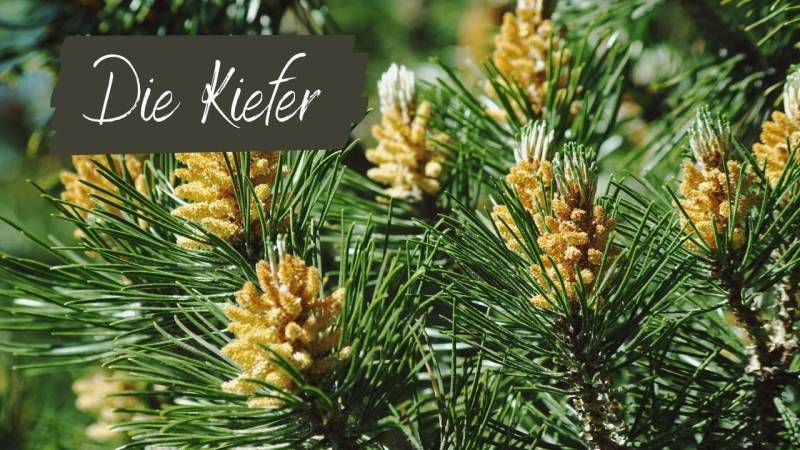
3. The Peppermint Mouthwash
Next up is a true classic, namely the peppermint mouthwash – and yes, you can really make it yourself.
Peppermint oil contains a variety of anti-inflammatory, antibacterial, and anti-fungal substances, making it a top choice for mouthwash.
By the way, this type of peppermint mouthwash also uses baking soda powder.
Remember the positive effects baking soda had on your oral cavity?
That's right, it has a positive effect on your pH level! With this mouthwash, you not only ensure fresh breath, but also oral health!
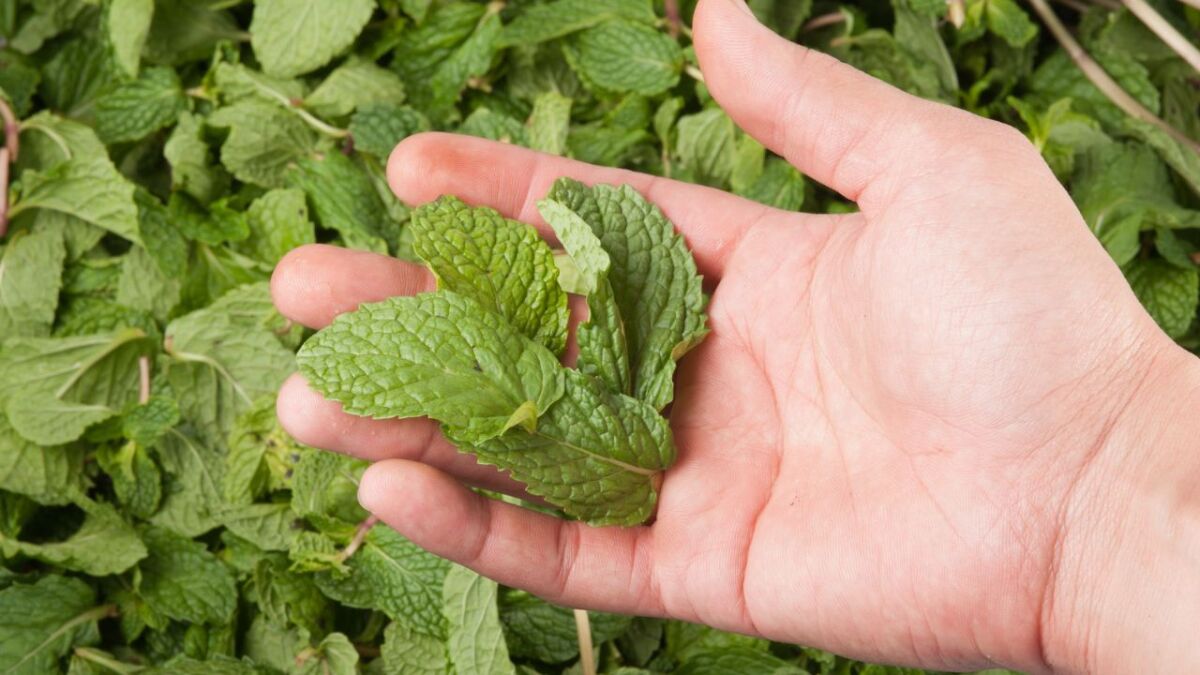
4. The Cinnamon Mouthwash
You can also use cinnamon to make an excellent mouthwash. What may sound more like the holiday season can actually help you achieve fresh breath and a healthy mouth.
This is mainly due to the valuable ingredients that cinnamon brings with it, which are excellent for oral and dental hygiene.
These ingredients ensure that cinnamon has a strong antibacterial effect and at the same time acts as an anti-inflammatory. On the one hand, a cinnamon mouthwash fights tooth decay, while on the other hand, it prevents or actively combats gum inflammation.
You will need either a few pieces of cinnamon or powder, depending on what is available to you.
Boil some water and sprinkle the powder or cinnamon pieces into it. Let it boil for about 10 minutes, as if you were preparing a soup. After the liquid has cooled, your cinnamon mouthwash is ready to use.
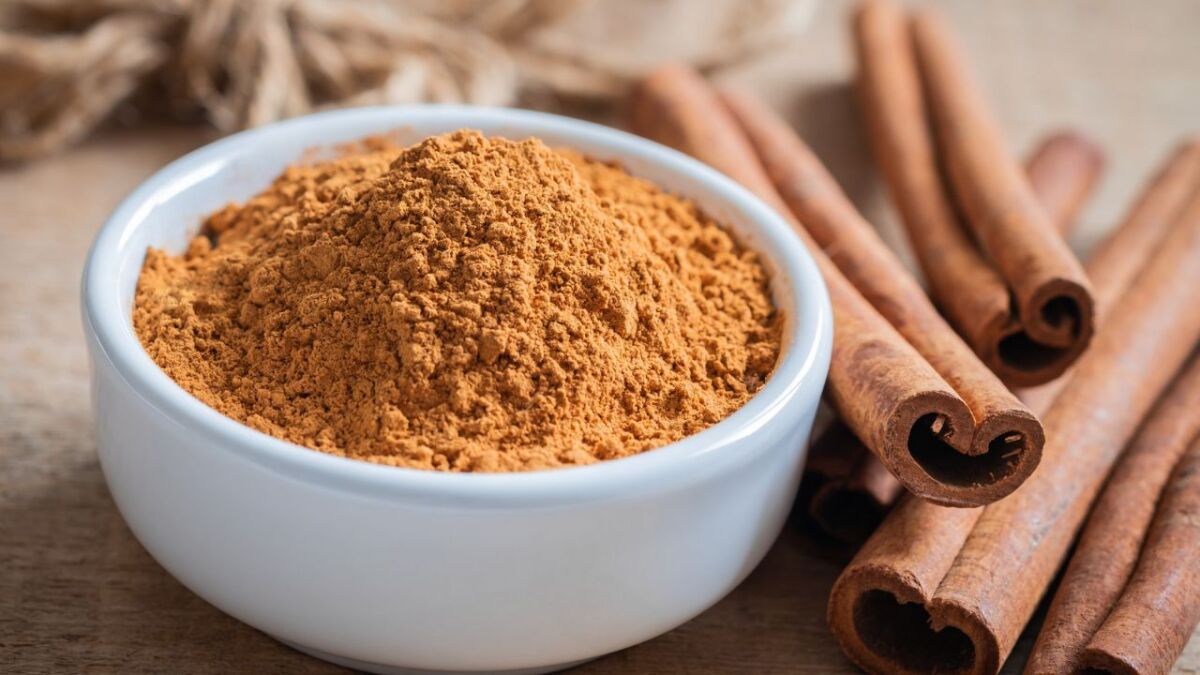
2 Alternatives to Conventional Dental Floss
Dental floss is also commonly used to perform dental and oral hygiene.
It helps you get into all the spaces between your teeth and remove annoying food debris. This is important because otherwise bacteria can build up and cause inflammation.
In the wilderness, you may not have direct access to dental floss unless you happen to have it with you – but there are alternatives.
1. Use a sturdy thread as a dental floss substitute
One simple solution is to use sturdy threads as a dental floss substitute.
But I'll tell you right away: You won't get far with a regular thread from a sewing kit. It will dissolve in your mouth before it can remove food debris from the spaces between your teeth.
If you have access to it, try using a polyester thread. Polyester threads are usually very sturdy and don't break down into their individual components when exposed to too much moisture.
However, you should not immediately put the floss in your mouth after pulling it out of your pocket - it should be disinfected first.
Keep in mind that microscopic cracks can form in your gums that may be susceptible to infections. If there are contaminants or bacteria on your makeshift floss, this can have serious consequences.
Disinfect the polyester floss before using it as dental floss. If you can't do that, then skip the polyester floss.
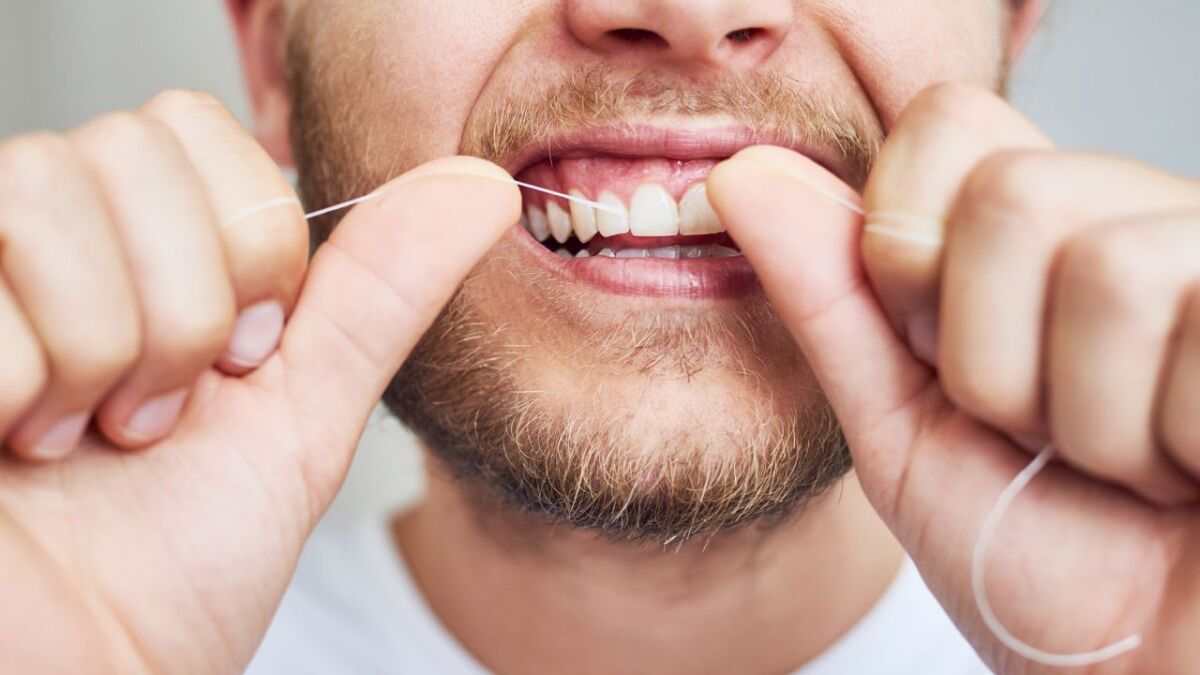
2. Use natural toothpicks
As in everyday life, you can also use toothpicks as an alternative if there is no dental floss available.
If you have commercial toothpicks with you, even better - use them! If not, there are still a few ways to achieve your goal. Especially if you are in the woods, you are surrounded by numerous natural toothpicks.
Break off a stick or branch of your choice, sharpen it, clean it, and use it simply as a toothpick.
However, be careful not to get any splinters. Splinters in the gums can be an unpleasant annoyance that you don't need in the wilderness and can avoid with a little caution.
Use sugar-free gum to clean your teeth
Are you a gum connoisseur by any chance? If so, you're in luck, because sugar-free gum can actually improve your dental and oral hygiene.
Gum increases your saliva production by up to 10 times, which in turn improves the pH level in your mouth and even removes some plaque.
Make a pine sap gum
I already explained to you the great antibacterial effect pine sap has when I recommended the pine needle mouthwash to you.
You can also use these same health-promoting ingredients to make a pine sap gum. This way, you can indulge in your gum passion in the wilderness while taking care of your oral hygiene.
- First of all, cut a piece of bark from the tree. Be careful not to cut out too large a piece of the tree, as you could seriously damage it. In the worst case, you could open the door to the tree's death.
- Nevertheless, cut deep enough to reach the inner bark layer of the tree. You can recognize it by its relatively moist and "alive" appearance. This is where all the tree's nutrients flow through.
- Next, cut a piece of this inner bark layer, put it in your mouth, and chew on it.
On the one hand, you will be supplied with all the valuable substances that pine sap has to offer, while on the other hand, you will effectively remove plaque.
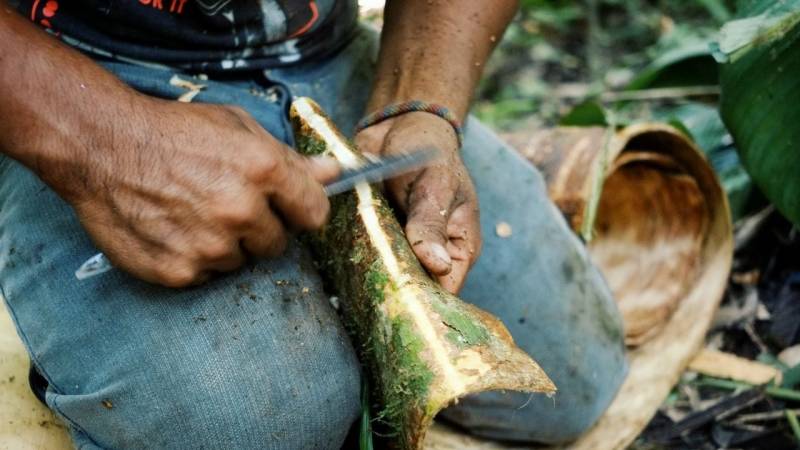
P. S. Please never cut trees without good reason!
Your dental emergency kit for the wilderness
Although we hope it never happens, you may still need a dental emergency kit that you can use in the wilderness.
You may have to perform a filling yourself, a tooth or crown may break off, or you may suffer from acute gum inflammation. The following utensils will help you out of a tight spot.
- Saltwater solution - make sure to always have saltwater or saline solution with you, as it is not only suitable for dental care, but can also help you in other ways due to its antibacterial properties.
- Baking soda or sodium bicarbonate - with baking soda or sodium bicarbonate and water, you can create a makeshift filling that you can use for cavities. This prevents bacteria from settling in and causing infections.
- Candle wax - this is more of a temporary solution if you have nothing else with you. Fill tooth holes with a little warm, non-chemically treated candle wax. This creates a physical barrier between the inside of the tooth and your mouth to prevent infections.
- Ginger - you probably already know that ginger has strong antibacterial and health-promoting properties. Therefore, you can also use ginger as a dental care product. Chew on it or cover tooth holes with it to prevent infections and improve your oral health.
These methods are by no means a permanent solution!
So, seek out a dentist as soon as possible if you are experiencing severe discomfort related to your oral health - even if it means you may have to cut short an adventure.
An infection in the oral cavity is no joke and can have serious consequences.
What other hygiene tips are important in the wilderness?
Wash hands regularly
In addition to dental care, it is also important to wash your hands regularly. Especially when eating outside or coming into contact with dirt and forest floor, bacteria can be transmitted. So always make sure your hands are clean.
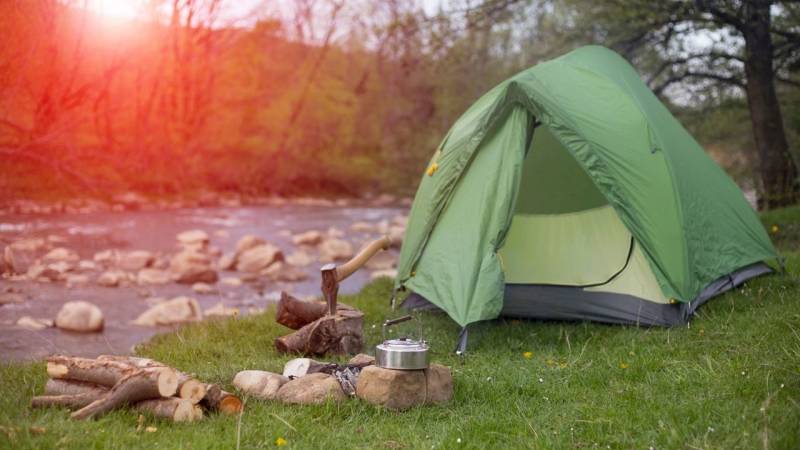
Pay attention to a balanced and tooth-healthy diet
A balanced and tooth-healthy diet also contributes to general oral and dental health. Therefore, make sure that you also have a healthy and balanced diet when traveling.
Pay attention to hygienic conditions when camping and sleeping outdoors
If you are camping outside, pay attention to hygienic conditions. This includes cleaning and caring for your body. The use of mouth cleaning wipes or brushing your teeth at the river or lake can be a good alternative here.
What special products are there for outdoor dental care?
Antibacterial toothpaste
For outdoor dental care, there are also specially produced toothpastes with antibacterial properties. These offer thorough dental cleaning even under difficult conditions.
Toothbrushes for outdoor use, e.g. with a collapsible handle
If you don't want to do without a toothbrush while on the go, you can use special travel toothbrushes. These are often equipped with a collapsible handle and can be stored space-savingly.
- GUM TRAVEL TOOTHBRUSH: This portable toothbrush features a tri-fold design that allows the bristles to fold into the handle for compact and hygienic storage in your purse, backpack, suitcase, or glove box.
- PERFECT FOR ON-THE-GO: The GUM folding toothbrush makes it easy to carry a clean, plaque-free smile with you wherever you go. Simply fold our pocket toothbrush up and throw it in your bag for airplane travel, road trips, backpacking and camping trips.
- HYGIENIC-TREATED BRISTLES: The bristles on our foldable toothbrush are treated with a hygienic solution that keeps your toothbrush fresh and clean between uses.
- COMPACT SOFT: GUM travel toothbrushes come with soft bristles and a compact size head. Each of our soft toothbrushes features a built-in tongue scraper for a total mouth clean that promotes fresher breath.
- HEALTHY STARTS HERE: Research continues to show the connection between oral health and overall health. The GUM brand is committed to providing innovative oral care products that make between-teeth cleaning accessible for everyone.
$4.99
View ProductDental care chewing gum for on the go
Dental care chewing gum is a practical way to quickly and easily support dental care on the go. They usually contain xylitol, which protects the teeth from cavities, as well as other ingredients such as fluoride and special active ingredients that clean the teeth and refresh the breath.
Dental care chewing gum can also help clean the mouth and refresh the breath after eating or drinking caffeinated or sugary drinks. They are easy to handle and can be easily stored in a small container or package in your pocket or backpack.

Amazon
Offer
Data updated 11 hours ago
- PEPPERMINT: This sugar free gum is refreshing & has a minty flavor to liven your taste buds. Keep your mouth feeling fresh with an intense burst of classic peppermint flavor. Comes in a resealable bag
- KICK ASPARTAME: Aspartame free & Sugar free gum that is naturally sweetened with 100% xylitol. Xylitol is an all-natural sugar alcohol that looks and tastes just like sugar, yet has 40% fewer calories
- ALLERGEN FREE GUM: PUR Gum is made just for you. We are Vegan, Aspartame Free, Non-GMO, Sugar Free, Gluten Free, Soy Free, Nut & Peanut Free, Keto Friendly, and Swiss Made
- OUR MISSION: PUR creates products with the highest quality ingredients to help you make simple substitutions so that your everyday decisions to live a healthier lifestyle are effortless
$10.99
List Price: $12.69
Conclusion: Dental and oral hygiene are necessary, even in the wilderness
Imagine being miles away from the nearest dentist and having a burning pain in your mouth. Not exactly the ideal bushcraft experience, right?
Good oral hygiene is an absolute must, even outdoors.
Because whether you believe it or not, a hole in your tooth can be just as dangerous in the wilderness as a bear attack. Well, almost. At least it can seriously spoil your outdoor adventures.
But don't worry, because nature is not only your playground, but also your pharmacy. With a little creativity, you can use many natural resources for your dental care.
So, even if your toothbrush set was stolen by a curious squirrel, there are still ways to keep your mouth clean and fresh.
And who knows, maybe you'll discover more natural dental care alternatives on your adventures that I haven't mentioned here. If so, let me know!
I hope this article was helpful to you. Feel free to browse my blog for more helpful tips and tricks for your outdoor adventures. Among other things, this guide on outdoor hygiene.
Have fun and remember: a clean smile is a happy smile, even in the wilderness!


Author of the guide
Martin Gebhardt
Hey, I'm Martin. On my blog, you will learn the basics and numerous details about living in the wild. I think survival, bushcraft and the good life in nature are the keys to happiness. Find me here on Instagram or on YouTube. You can find more about my mission on the About Me page.
Was this guide helpful?
19 people found this guide helpful.
5.00 out of 5 points (19 Ratings)
Comments (0)
This post may contain affiliate links. So if you click on the links and make a purchase, I will receive a small commission at no additional cost to you. Click here, to learn more about it.




